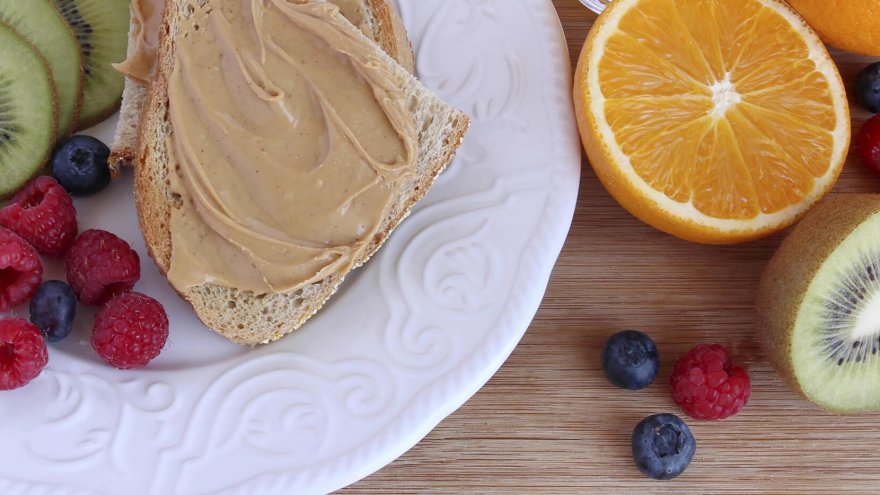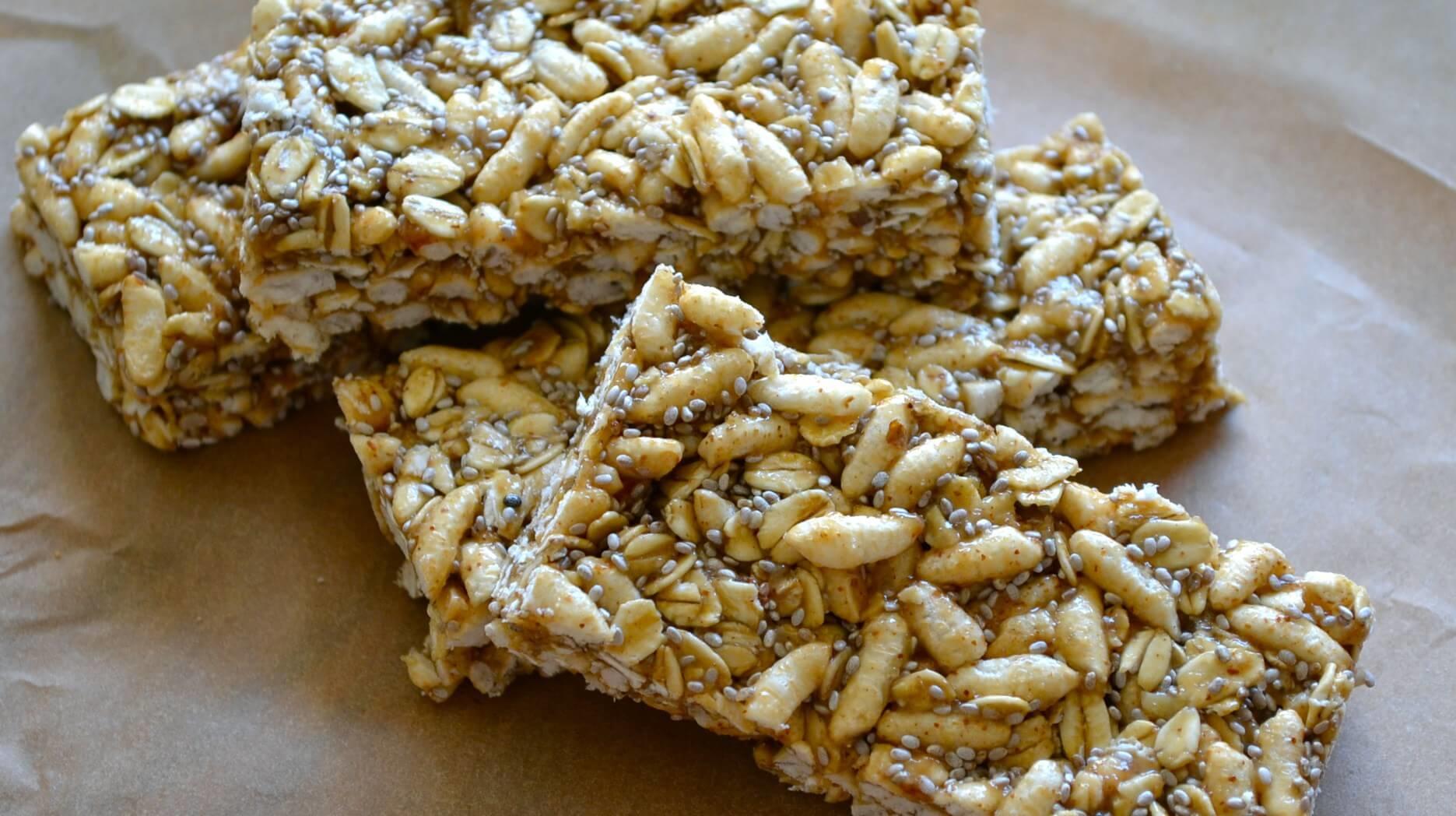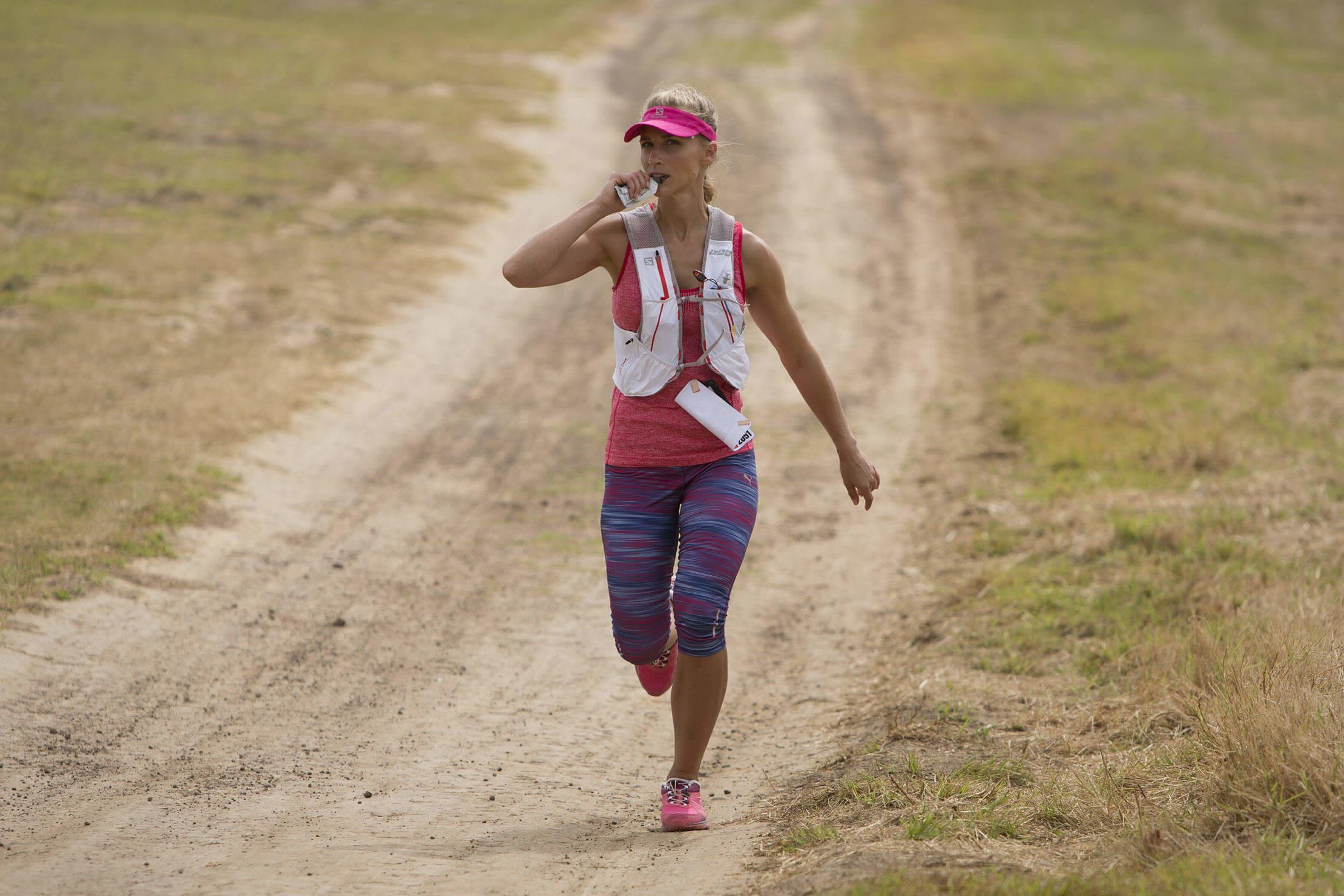What Should You Eat Before Running?

Are you concerned about possible stomach issues if you eat before running? Most people don’t know what to eat before a run and whether it is really necessary to eat anything or not. If you have the same problem, keep reading and find out what you should do regarding this issue.
Running on an Empty Stomach vs Eating Before a Run
You should feel neither stuffed nor starved when beginning a run. If you run on an empty stomach, it may lead to running out of energy during your run. That will leave you feeling lethargic, overly fatigued, light-headed, or dizzy. Some people can run on an empty stomach and do not have any of these ill effects. However, it is recommended that you bring with you an energy bar (a rescue snack) and sports drink. These will be of great help when you find yourself worn out and woozy on a run.
The answer is different, because it depends on various things, such as your fitness, health condition, type of running, and how long you plan to run for. You will have to discuss this matter with your doctor if you have a health issue such as diabetes. However, make sure to fuel your body for a longer run. If you’re planning to do an intense speed workout or run longer than an hour, you must not avoid eating. Otherwise, you will quickly burn your stored energy, and start feeling hungry and fatigued.

Most of the time, you will feel stronger during your run if you eat something before.
When to Eat
You must not eat immediately before a run, as it could cause cramping or an upset stomach. Your best bet is to eat something about and hour and half to 2 hours before you start running. It could be either a light meal or snack. This way, your intestines will have enough time to digest that food and you will be fueled for a run. For your morning runs, try to force yourself to wake up and hour and half to 2 hours earlier than usual, to eat a small meal or snack before you run.
If you eat a large high-calorie meal, you need to wait at least 2 hours before running, as your stomach needs more time to digest. On the other hand, if you eat a small low-calorie snack, be sure to start your run no longer than an hour afterwards.
There is no general rule regarding this issue, because everyone has a different metabolism and digestive system. Thus, what works for other people might not necessarily work for you. Calculate that time according to your own needs.

What to Eat
It is very important to make the right choice for a pre-run meal since the wrong food can make you feel uncomfortable during your run. Therefore, you need to choose a food that is rich in carbs as well as low in fat, protein, and fiber. High-fiber and very fatty food may cause diarrhea or other gastrointestinal disorders.
For example, eating a 400-500 calorie meal high in carbohydrates will ensure you are not running on “fumes” . If you want to eat less than 90 minutes before your run, make sure to have a 200-300 calorie meal/snack, such as a cup of yogurt or toast with peanut butter.
The following is my suggestions on what you should eat and what to avoid before running.
Safe pre-run foods:
- Refined carbs. This includes processed white foods, such as plain bagels, white rice, and regular pasta. Though these foods are not as nutritious as whole grains, they are easier to digest.
- Safe dairy products. Not all dairy products are safe before running. For instance, soy, almond milk, and rice are generally safe, since they are free of sugar lactose, which is tough to digest. However, you can safely consume yogurts and acidophilus milk with live cultures, as these dairy products contain a certain bacteria that speeds up digestion.
- Vegetables and low-fiber fruits. Bananas, tomatoes, zucchini, grapes, grapefruit, and olives are all low in fiber and thus safe before runs.
In addition, good pre-workout food can also include cereal and milk, an energy bar with a banana, oatmeal with berries, or a turkey and cheese sandwich.

Foods to avoid before your runs:
- High-fat foods. This includes high fat foods such as hamburgers, bacon, cheese, and fried foods. High-fat foods digest slowly and may cause gastrointestinal distress.
- High-fiber foods. Legumes, vegetables, fruits, whole-grain foods that are rich in fiber can also cause diarrhea, gastrointestinal distress, and other digestive issues, especially if you consume them as your breakfast before a long run or even the night.
- Caffeine. Coffee, as well as other caffeinated beverages, may cause diarrhea and other stomach issues in some people. If you are a regular coffee drinker, you will most likely tolerate caffeine without any problem.
If you cannot completely eliminate some of these foods, try limiting them before your runs to see if it makes any difference.

Hydrate before Running
While you can sometimes avoid food before running, make sure that you are hydrating properly before you start. Otherwise, you may get dehydrated during your run. A good tip is to drink at least 8 ounces (about 0.2 liters) of water when you wake up. You can also drink a sports drink before running, which will help you get some calories. If you want to run longer than half an hour, you need to hydrate during your run as well.

As mentioned earlier, every runner is different, so that you should try out different foods and figure out which ones work best for you. If you are going to run a big race, you shouldn’t experiment with new foods the morning of your race. Instead, you should eat the same pre-run foods and have exactly the same nutrient timing as during your training. This way, you will have no surprises on the race day.
Latest Articles
 Is Running on a Treadmill Easier Than Running Outside?Runners have their own preferences, whether it is treadmill running, running outside on the road, or exploring trails. So...
Is Running on a Treadmill Easier Than Running Outside?Runners have their own preferences, whether it is treadmill running, running outside on the road, or exploring trails. So... Is It OK to Use Trail Running Shoes on the Road?While trail running shoes can be used on roads, especially in situations where a runner encounters mixed terrains or pref...
Is It OK to Use Trail Running Shoes on the Road?While trail running shoes can be used on roads, especially in situations where a runner encounters mixed terrains or pref... How to Fix Sore Quads After Running?Rest, ice, gentle stretching, and over-the-counter pain relievers can help soothe sore quads after running. Also, ensure ...
How to Fix Sore Quads After Running?Rest, ice, gentle stretching, and over-the-counter pain relievers can help soothe sore quads after running. Also, ensure ... 10 Fruits With The Most Electrolytes to Replace Sports DrinksThese fruits are high in electrolytes such as potassium, magnesium, and calcium, essential for hydration, muscle function...
10 Fruits With The Most Electrolytes to Replace Sports DrinksThese fruits are high in electrolytes such as potassium, magnesium, and calcium, essential for hydration, muscle function...

